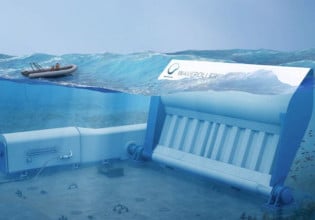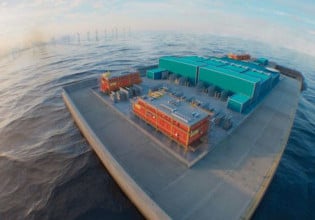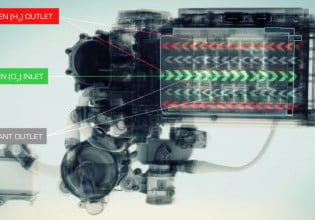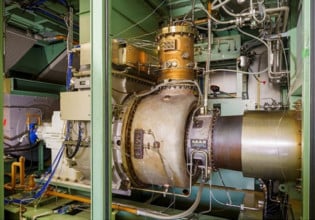The hydrogen systems lab at Purdue University (West Lafayette, IN) is working to develop technology that will enable fuel cells to power vehicles and make combustion engines a memory for motorists. A hydrogen storage system for vehicles would need to be safe and compact, and Purdue is studying a system that introduces compressed hydrogen to a powdered metal to form a metal hydride with a storage density higher than that of liquid hydrogen. The advantage to the system over liquid hydrogen is the element doesn’t take liquid form until it reaches -400 °C, which would require a cryrogenic tank on a vehicle.
Hydrogen is being promoted because of the benefits in a carbon-free environment, explained Timothy Fisher, an associate professor of mechanical engineering, who directs the lab at the university’s new Energy Center. "If you took solar energy and used that to produce hydrogen, it could take carbon out of the equation and could address, at least in part, the greenhouse gas emission problem. There will always be a place for biofuels because they generate much less pollution than fossil fuels. Infrastructure is clearly a critical process for adopting hydrogen fuels. There’s certainly going to be places where hydrogen won’t be existing for a long time, but the petroleum infrastructure is just about everywhere now."
Researchers are still far from realizing the promise of a carbon-free system. Much work remains for the development of a practical means of producing large amounts of hydrogen by energizing water molecules to separate the element from them. Theoretically, this could be done by means of solar energy, electrolysis, wind power, or hydroelectric power, but currently it is not a very efficient process.






